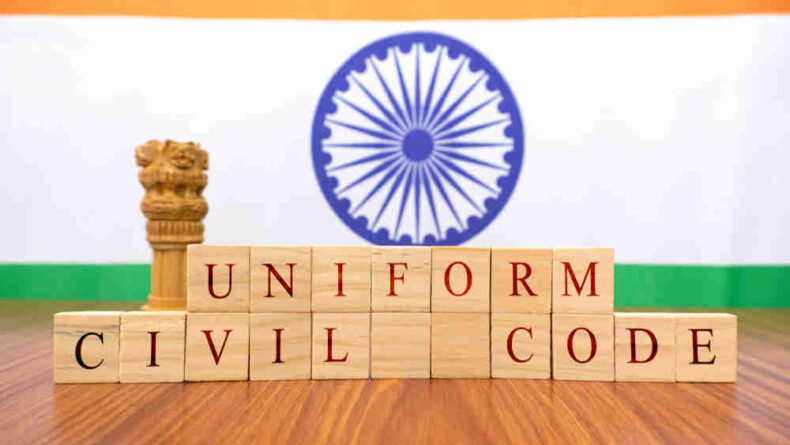
Source: Deccan Chronicle
With the debate on same sex marriages gaining its momentum the centre is all set to begin discussions on the implementation of UCC across the country. Home Minister Amit Shah chairing a high level meeting along with Law minister Kiren Rijuju, RSS veteran Arun Kumar, Solicitor General Tushar Mehta, top officials from various departments and BJP president JP Nadda has expressed its willingness to introduce bill for Uniform civil code in the Monsoon session of the parliament beginning July.
UCC has been an in the election manifesto of the BJP since the times of Jan Sangh. It was one of the three main promises made in the election manifesto of 2019 along with Shri Ramjanmabhoomi temple and Article 370. With the other two being fulfilled, the saffron party is eyeing to fulfill its third promise before the 2024 elections.
The Bhartiya Janata Party has been using the UCC card in various elections starting from the Uttrakhand election, wherein it formed a committee to discuss the implementation of the code. As of now Goa is the only state in India where the UCC is implemented in the form of Portuguese Civil Code, which remained unchanged even after the liberation of Goa in 1962.
As of now committees have been set up in the states of Madhya Pradesh, Gujarat and uttarakhand for the implementation of UCC.
Amid the upcoming polls in the states of Karnataka, Madhya Pradesh, Telangana and Chattisgarh in the second half of the year and the grand 2024 elections on their way the party is using the UCC card in full swing which is very likely to garner them votes.
Solicitor General Tushar Mehta had last month said the Supreme Court that centre is in favour of enacting UCC with its implementation being an exclusive ‘domain of the parliament’ and not the courts. Also Law Minister Kiren Rijiju had said the house last month that centre is discussing UCC with the 22nd law commission which is chaired by former Supreme Court judge Rituraj Awasthi.
The 21st law commission after reviewing nearly 75000 responses, in its ‘Consultation paper’ in 2018 had suggested that UCC is ‘neither necessary nor desirable at this stage.’
History of UCC

Source: Telegraph India
Article 44 which is Part 4 of the Indian Constitution provides that “state shall endeavor to secure for its citizen a uniform civil code throughout the country.” A UCC is a common set of laws in matters of marriage, divorce, succession, inheritance, etc for all the religions. As of today different religious sects in India are governed by their own personal laws which create an inequality for women and other marginal communities.
The Uniform civil code aims to bring uniformity in all these aspects and also aims to shift away from ‘appeasement politics’ which has been visible in India since the time of Shah Bano case.
The seeds for a common set of laws were sown in India by the british in 1840 when they planned to bring about equality in criminal laws, contract acts, etc. But the British followed the policy of non interference in religious aspects in the bid to uniformity. This was confirmed by the Queen’s charter of 1859.
After Independence leaders such as Pandit Nehru, Dr. Ambedkar and the likes of them wished to introduce UCC in India but their bid was unsuccessful due to mass ignorance which prevailed at the time and also due to various leaders which opposed it.
Thus the Muslims in India continue to be governed by Muslim personal law; Hindus, Buddhist, Sikhs and Jains by their own Personal laws and other communities by their own laws.












